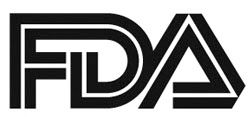FDA Approval Sought for Daratumumab Triplet in Relapsed/Refractory Multiple Myeloma
A supplemental Biologics License Application for daratumumab in combination with carfilzomib and dexamethasone was submitted to the FDA for consideration as treatment for relapsed/refractory multiple myeloma, according to a press release from Janssen Pharmaceuticals.

A supplemental Biologics License Application (sBLA) for daratumumab (Darzalex) in combination with carfilzomib (Kyprolis) and dexamethasone was submitted to the FDA for consideration as treatment for relapsed/refractory multiple myeloma, according to a press release from Janssen Pharmaceuticals.
The sBLA is supported by positive data fromthe phase III CANDOR study, which were presented in the 2019 American Society of Hematology (ASH) Annual Meeting. In the study, daratumumab plus carfilzomib and dexamethasone reduced the risk of disease progression or death by 37% compared with carfilzomib and dexamethasone alone in patients with relapsed/refractory multiple myeloma. When compared with the control, the median progression-free survival was not reached in the combination arm versus 15.8 months (HR, 0.63; 95% CI, 0.46-0.85;P= .0014). At a median follow-up of 17 months, median overall survival was not yet reached in either arm (HR, 0.75; 95% CI, 0.49-1.13; P= .08).
A total of 466 patients with relapsed/refractory multiple myeloma previously treated with 1 to 3 prior therapies were included in the open-label CANDOR trial and randomized to receive daratumumab 16 mg/kg on days 1, 8, 15, and 22, of cycles 1 and 2, every 2 weeks during cycles 3 to 6, and every 4 weeks during cycle 7 and beyond. Carfilzomib was administered as a 20 mg/m2loading dose on days 1 and 2 of cycle 1 only, then at 56 mg/m2for all subsequent doses on days 1, 2, 8, 9, 15, and 16. Dexamethasone was given at 40 mg on days 1, 8, 15, and 22 of each cycle. During weeks when patients received carfilzomib and/or daratumumab infusions, a split dose of 20 mg each of dexamethasone was administered. All treatments were given over a 28-day cycle.
PFS was the primary end point of the study, and the key secondary end points included overall response rate (ORR), minimal residual disease (MRD)-negative status, complete response (CR) rate at 12 months, OS, duration of response, and safety.
A total of 461 patients were included in the safety analysis. The combination regimen demonstrated similar safety to what had been previously reported with each agent. Of the patients in the combination arm (n = 308), 56.2 % experienced adverse events (AEs) of grade ≥3 compared with 45.8% in the monotherapy arm (n = 153). Serious AEs occurred in 56.2% versus 45.8%, respectively. Patients who received the combination discontinued treatment at a rate of 22.4% compared with 24.8% of those treated with dexamethasone alone. Grade ≥3 cardiac failure was observed in 3.9% of the patients treated with the daratumumab triplet compared with 8.5% who received the carfilzomib and dexamethasone doublet.
The study included individuals with relapsed or progressive multiple myeloma after the last treatment and measurable disease. Patients who had prior carfilzomib treatment were eligible for the study given they achieved a partial response with the most recent carfilzomib treatment, did not stop treatment due to toxicity, did not relapse within 60 days from discontinuation of treatment, and had a 6-month break from before starting treatment on the study. Patients who had prior anti-CD38 antibodies were also allowed with the same conditions as those who had prior carfilzomib. The study excluded individuals with conditions that may have interfered with the study treatment.
Daratumumab is already approved as monotherapy for the treatment of multiple myeloma in patients who have received at least 3 prior therapies. The drug is also being evaluated in other clinical trials for the treatment of multiple myeloma across settings.
Reference:
Janssen announces submission to U.S.FDA for new Darzalex (daratumumab)-based combination regimen for patients with relapsed/refractory multiple myeloma [new release]. Raritan, New Jersey: The Janssen Pharmaceutical Companies of Johnson & Johnson; February 10, 2020.https://bit.ly/31Qsj9F. Accessed February 11, 2020.
Gasparetto Explains Rationale for Quadruplet Front Line in Transplant-Ineligible Myeloma
February 22nd 2025In a Community Case Forum in partnership with the North Carolina Oncology Association, Cristina Gasparetto, MD, discussed the CEPHEUS, IMROZ, and BENEFIT trials of treatment for transplant-ineligible newly diagnosed multiple myeloma.
Read More